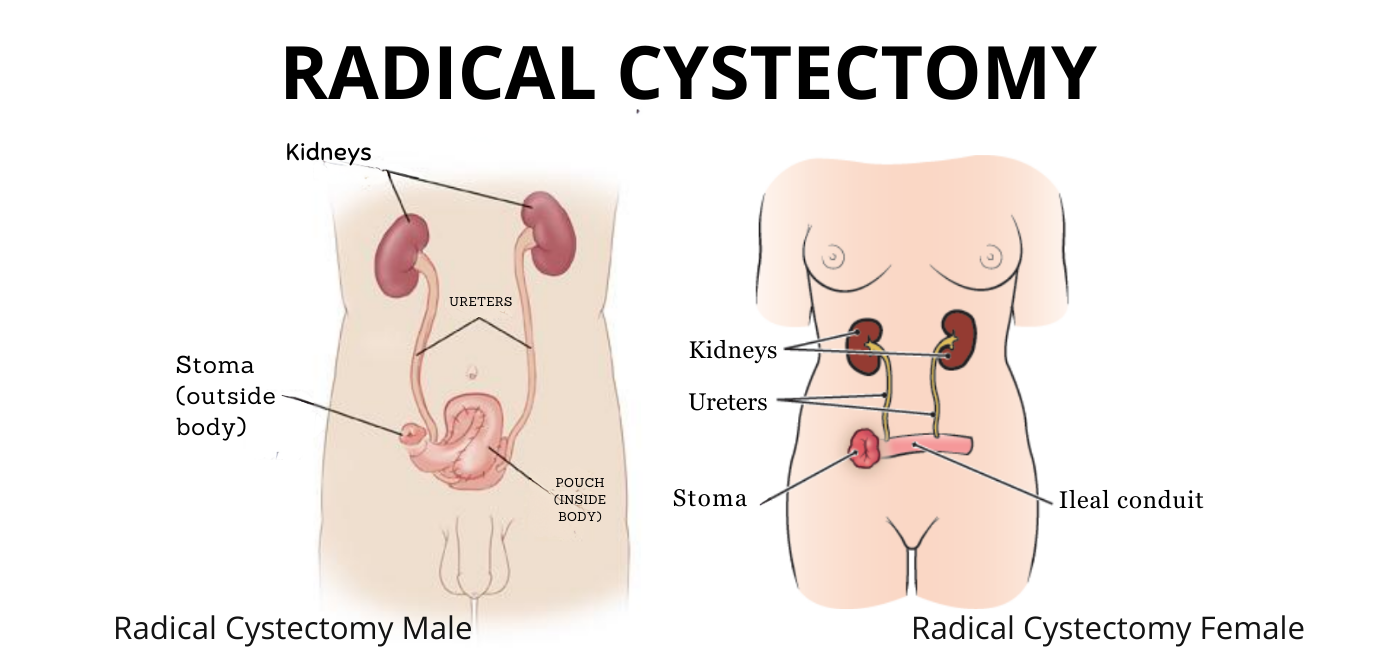
Radical Cystectomy
Overview
Radical cystectomy is a surgical procedure performed to remove the urinary bladder, typically as a treatment for invasive bladder cancer or other severe bladder diseases. The procedure involves the removal of the bladder and, in some cases, surrounding organs, such as the prostate in men or the uterus and part of the vagina in women. After the bladder is removed, urinary diversion is performed to create a new way for urine to exit the body.
Who Needs A Radical Cystectomy?
Radical cystectomy is recommended for patients with:
- Muscle-invasive bladder cancer (cancer that has spread into the bladder muscle)
- High-risk non-muscle-invasive bladder cancer that has not responded to other treatments
- Recurrent bladder cancer despite previous therapies
- Severe bladder dysfunction or chronic inflammation due to interstitial cystitis or neurogenic bladder disorders
Procedure
Radical cystectomy is performed under general anesthesia. It involves:
- Bladder removal: The affected bladder and possibly nearby organs are surgically excised.
- Urinary diversion: A new way to store and pass urine is created using different surgical techniques, such as:
- Ileal conduit (a stoma is created for urine to drain into an external pouch)
- Neobladder reconstruction (a new bladder is formed using intestinal tissue)
- Continent urinary reservoir (internal pouch with catheterized drainage)
This complex surgery requires expert surgical skills and post-operative care to ensure proper recovery.
Post-Surgical Recovery
Recovery from radical cystectomy includes hospital stay, pain management, and gradual return to normal activities. Patients are closely monitored to ensure proper healing and adaptation to the new urinary system. Regular follow-ups help manage long-term health and detect potential complications.
Conclusion
Radical cystectomy is a life-saving procedure for patients with advanced bladder cancer and other severe conditions. With advanced surgical techniques and proper post-operative care, patients can achieve a good quality of life. If you or a loved one requires radical cystectomy, consult with an experienced urologist or surgical team for the best treatment options tailored to your needs.
FAQs
1. How long does it take to recover from a radical cystectomy?
Recovery time varies, but most patients stay in the hospital for 7–10 days after surgery. Full recovery can take 6–12 weeks, depending on individual health and the type of urinary diversion performed.
2. What are the risks and complications of radical cystectomy?
Potential risks include infection, bleeding, blood clots, bowel obstruction, and complications related to urinary diversion. Long-term monitoring and follow-ups help manage these risks effectively.
3. Can I lead a normal life after radical cystectomy?
Yes, with proper rehabilitation and adaptation, patients can return to normal daily activities. Those with a neobladder or continent diversion may have near-normal urinary function, while those with an ileal conduit will use an external bag for urine collection.